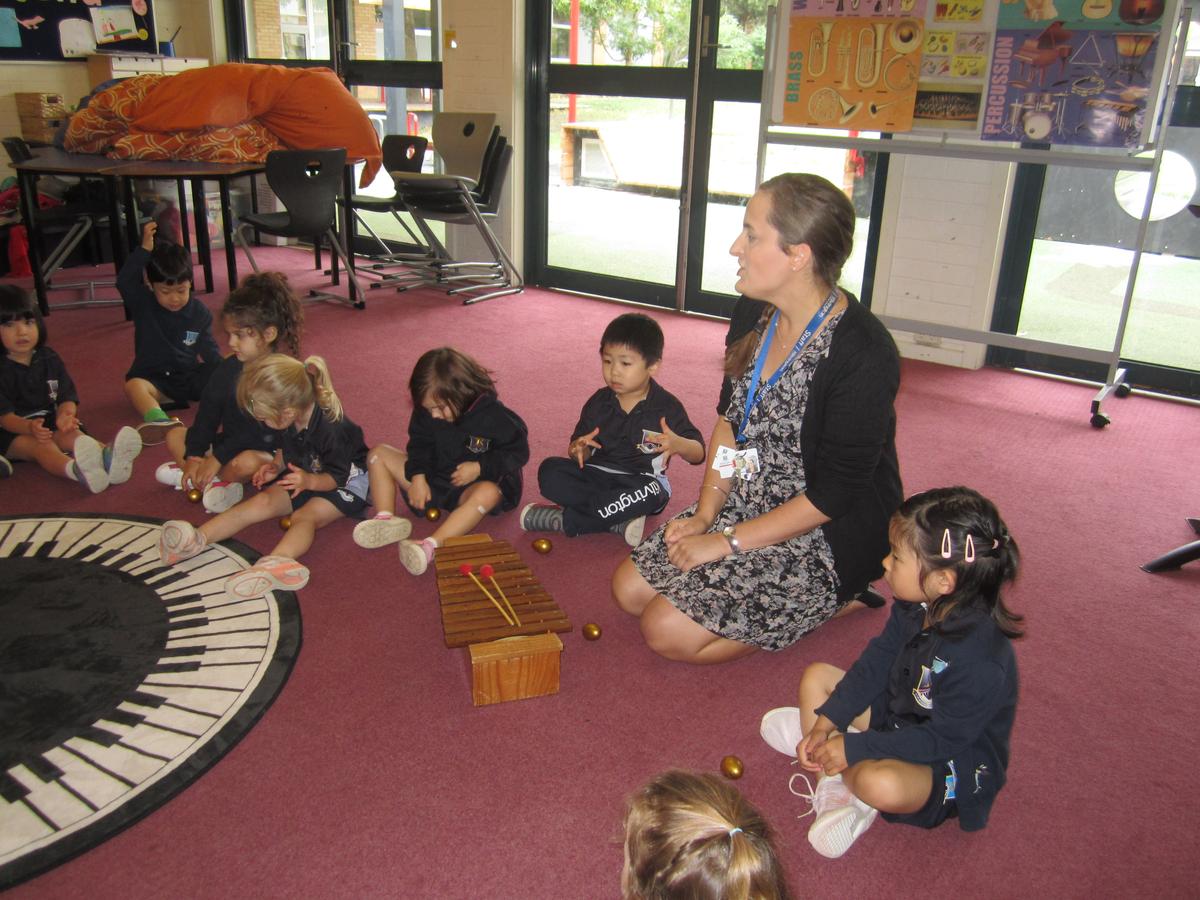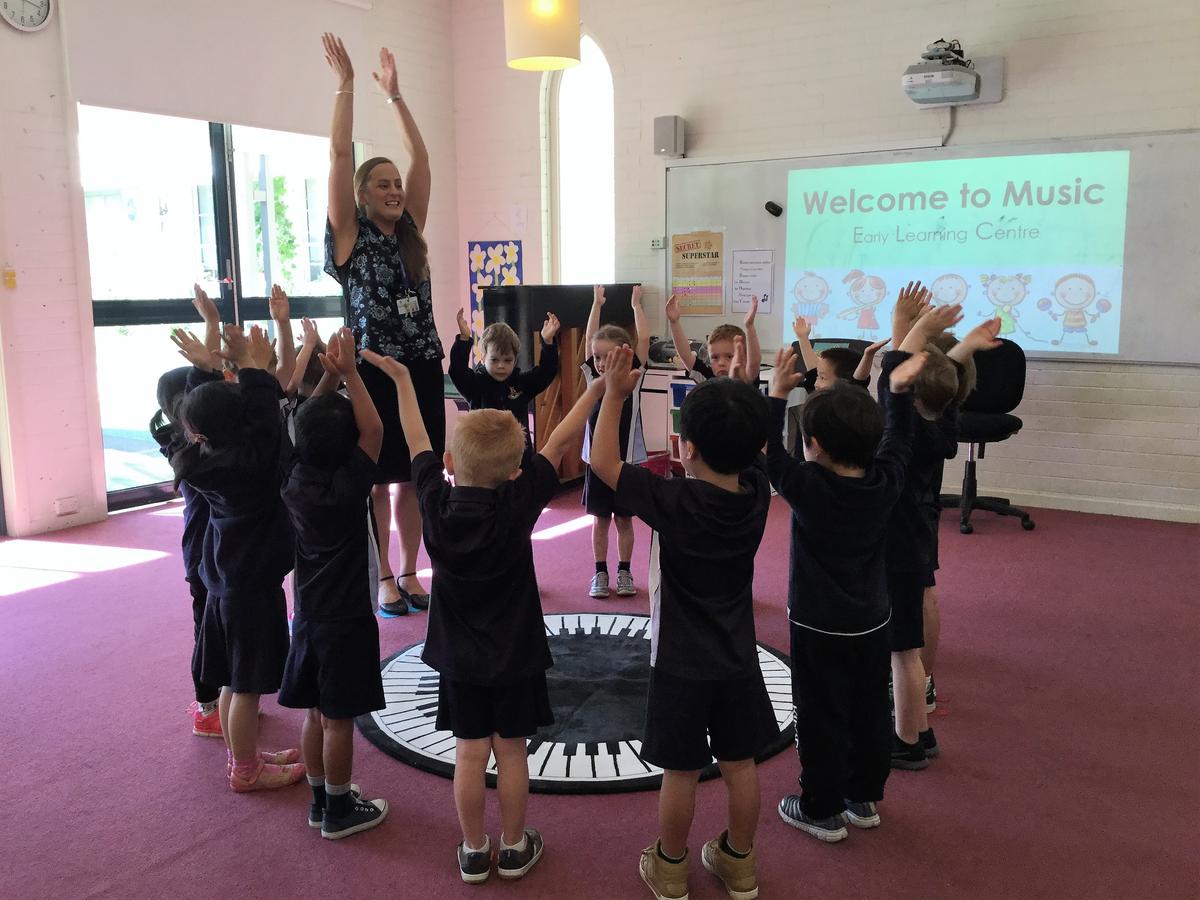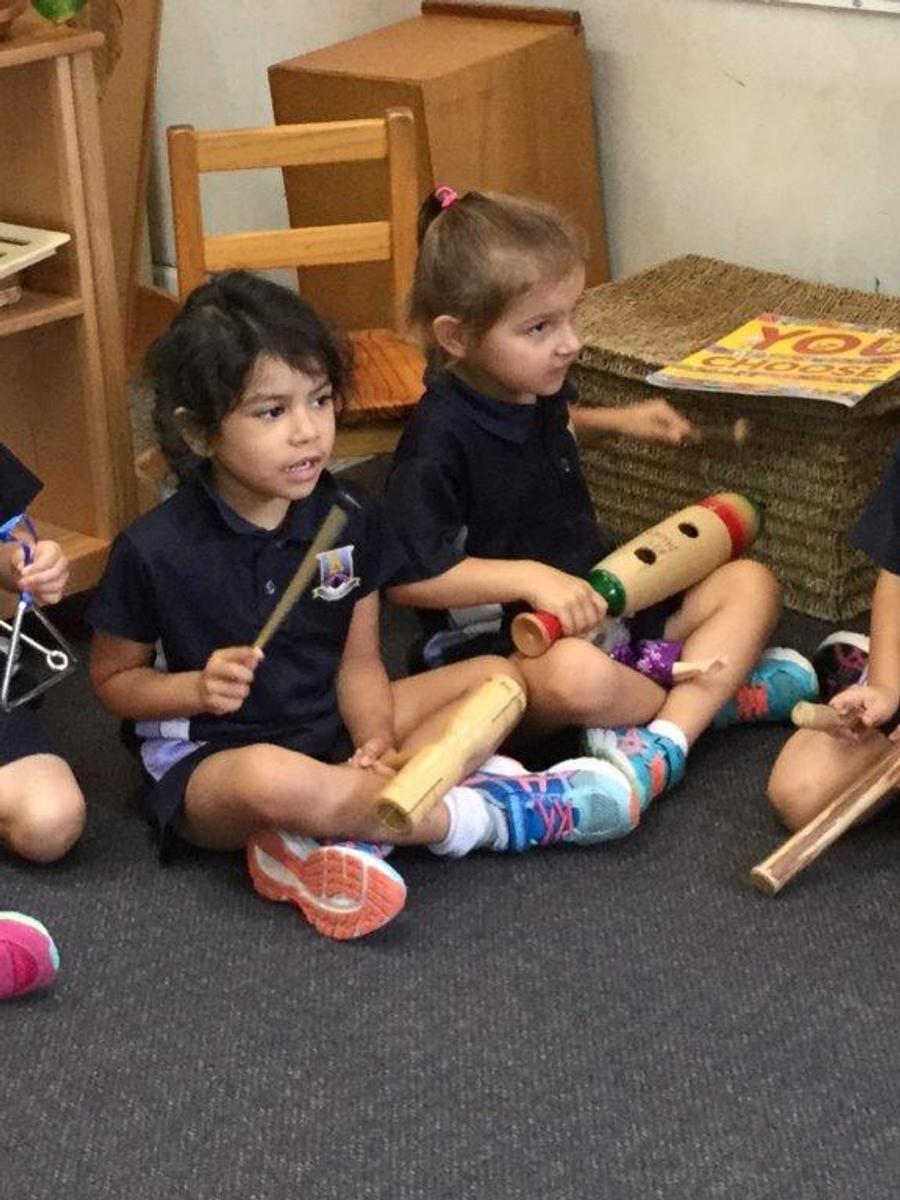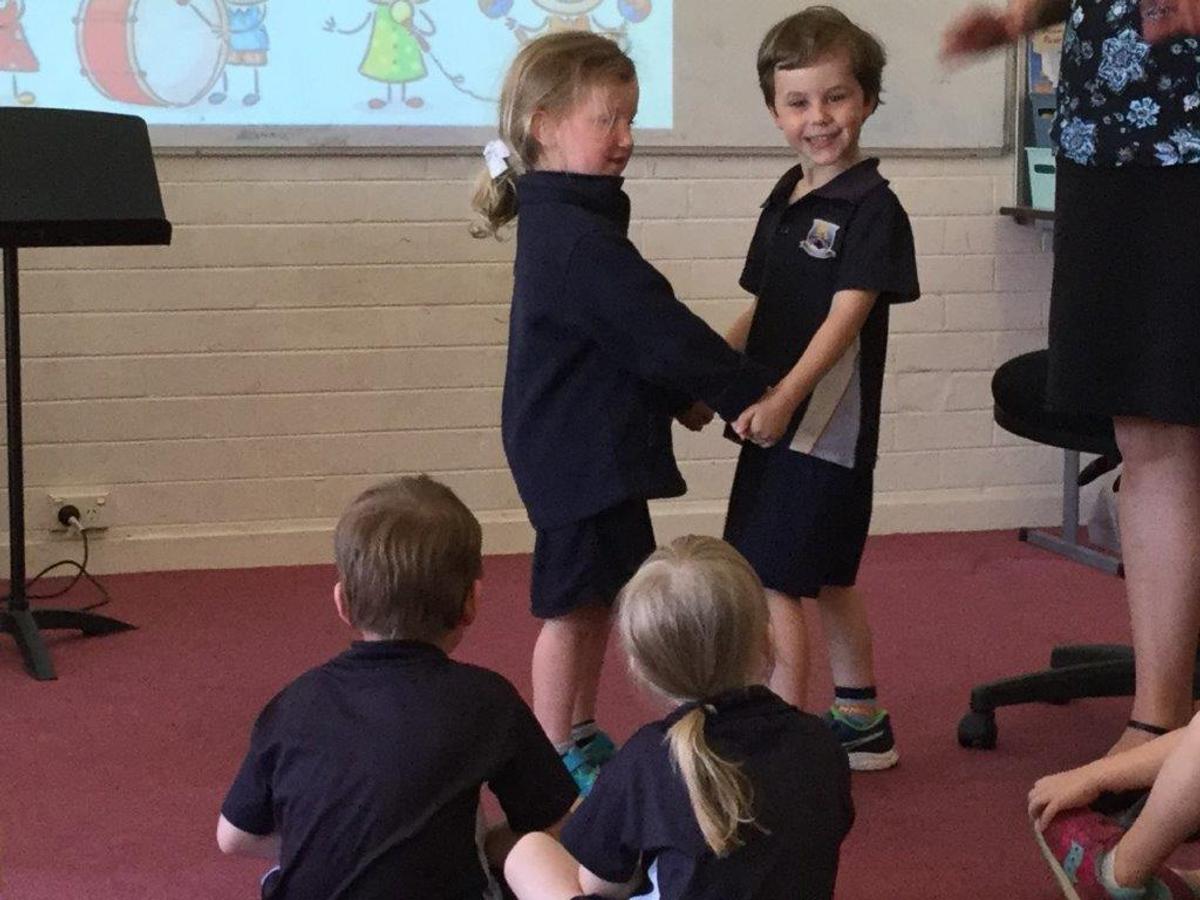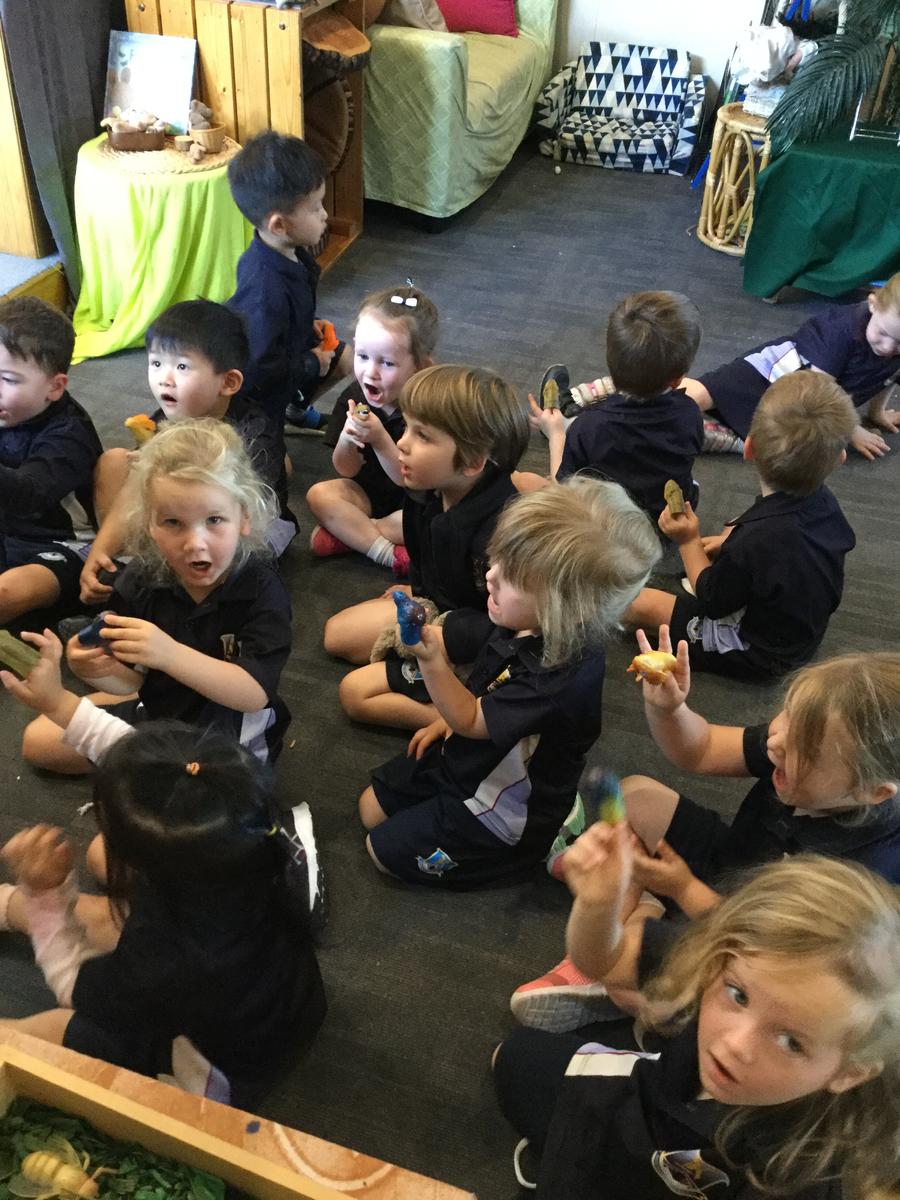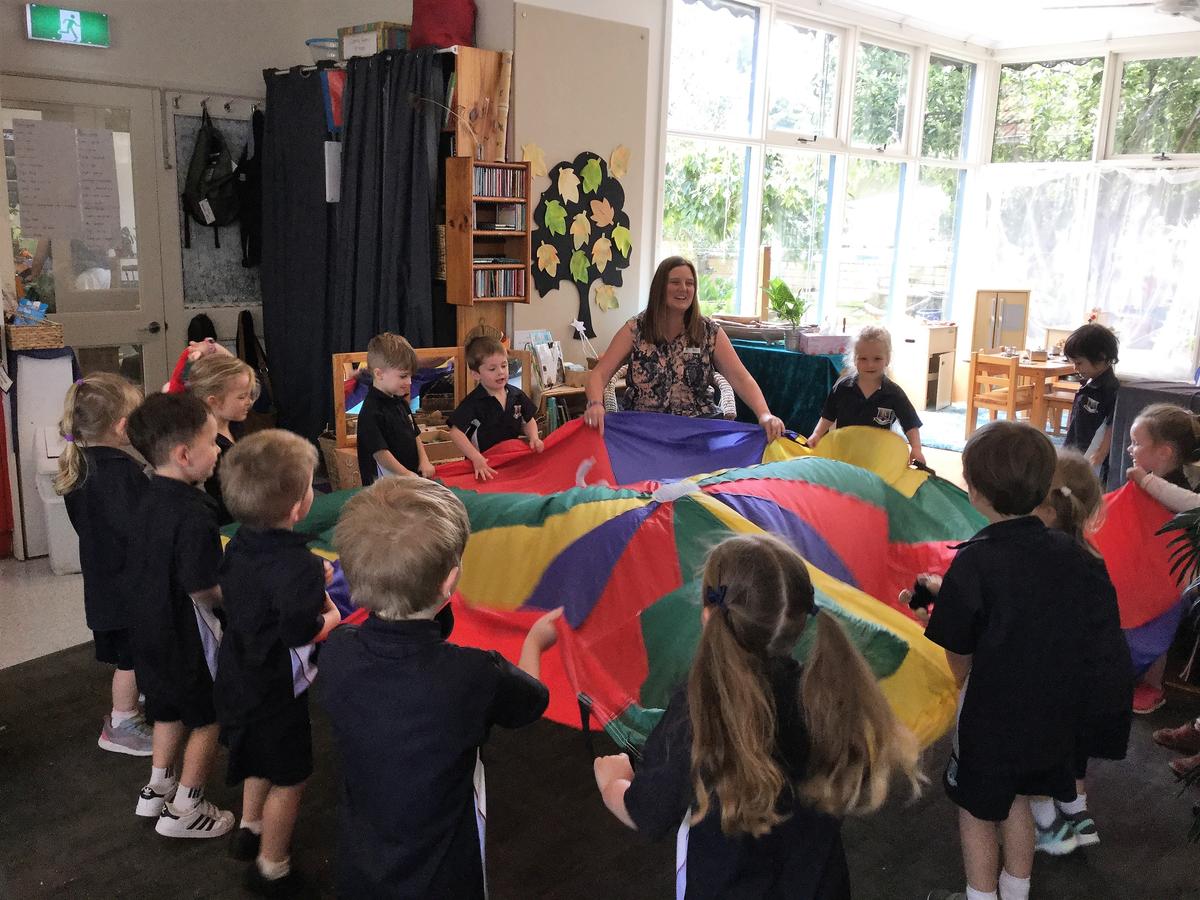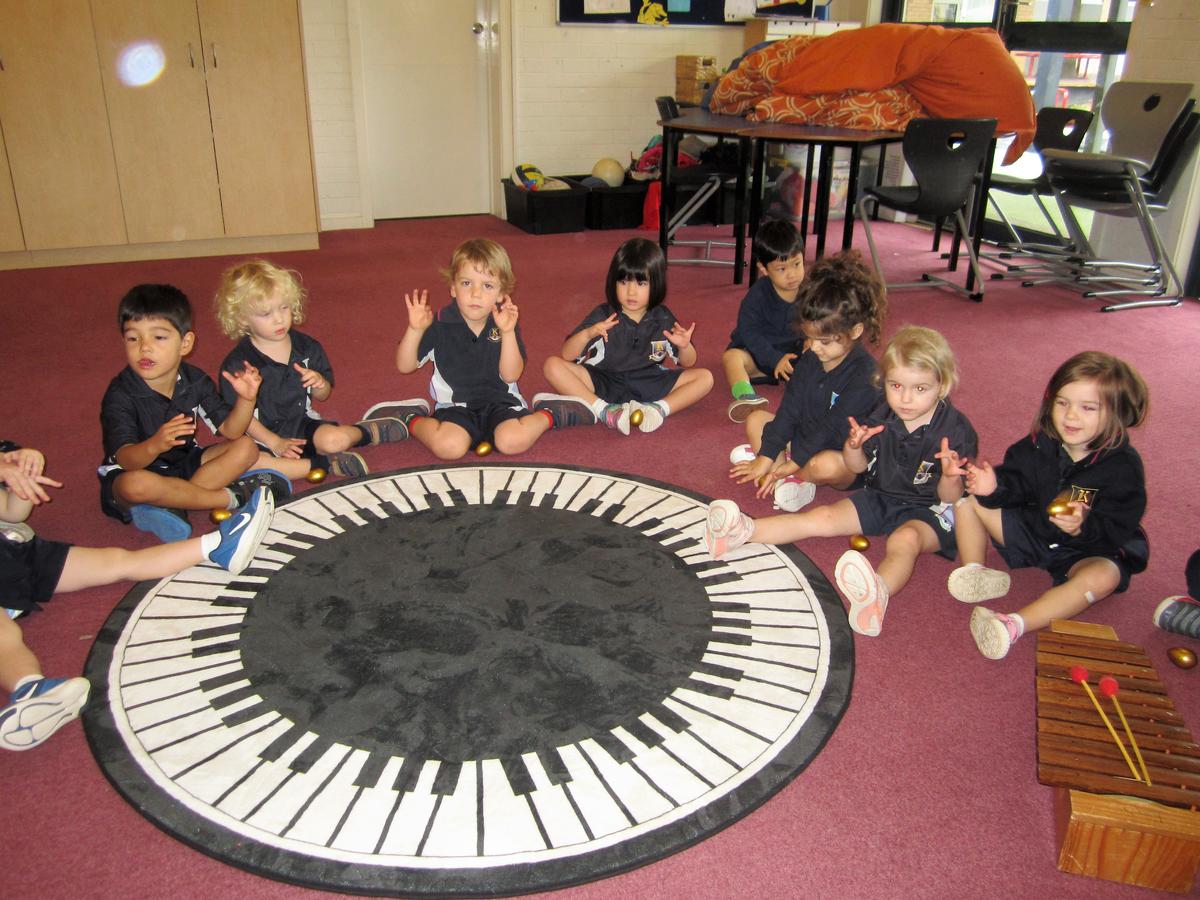From the ELC - Music in Early Childhood
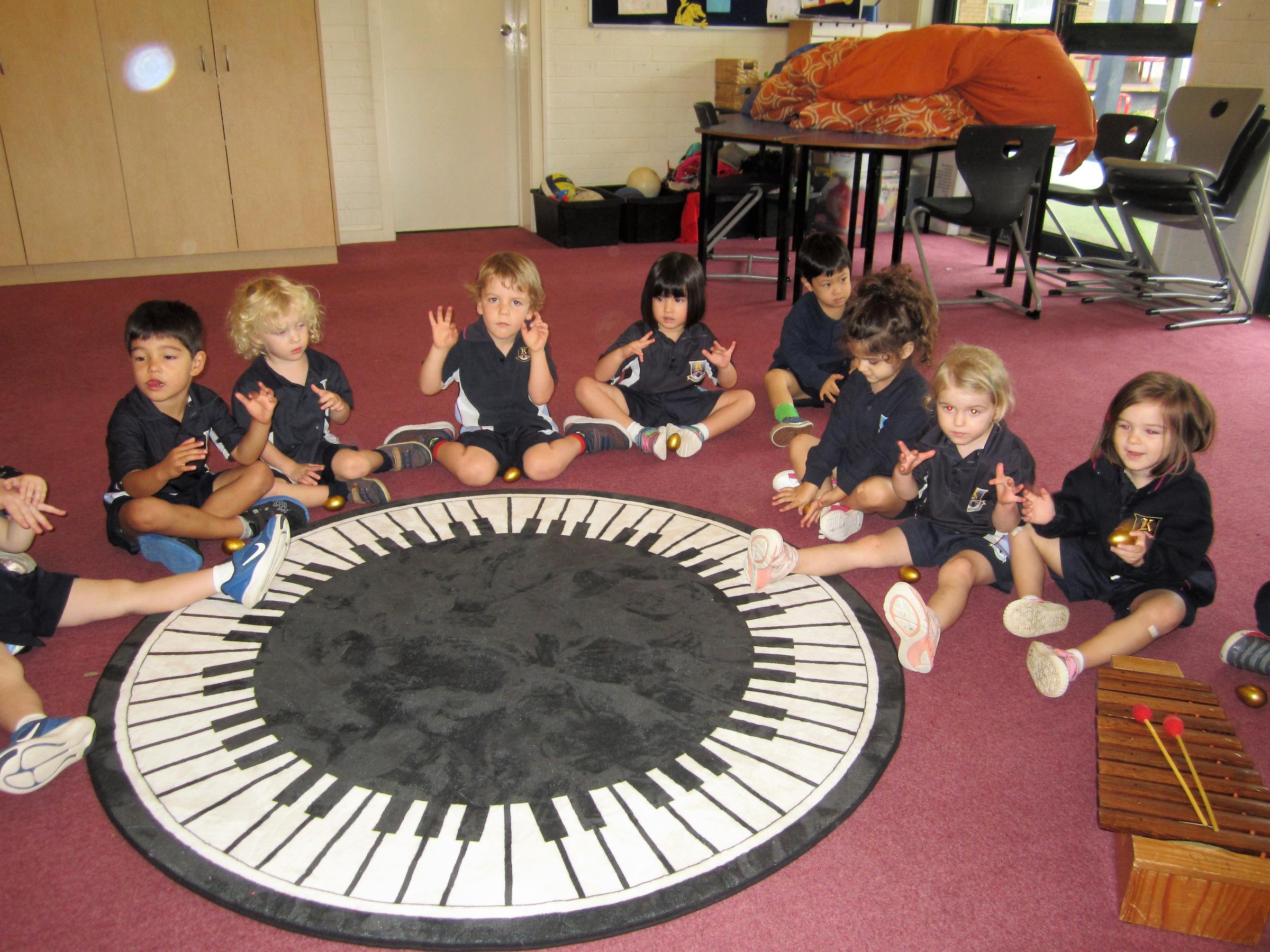
Lyn Pewtress, ELC Coordinator
This week, the ELC commenced weekly music specialist sessions with our lovely music teacher, Fiona Radford. This wonderful addition to our weekly program has inspired me to write about the benefits of music for our early childhood students.
What Children Learn from Music
Past research has suggested that exposure to music from early childhood onward helps children to speak more clearly, develop a larger vocabulary, and strengthen social and emotional skills.
Educational psychologist Howard Gardner argued that music intelligence is as important as logical and emotional intelligence; music has the ability to strengthen the connection between the body and brain.
Music is a natural and important part of young children’s growth and development. Early interaction with music positively affects the quality of all children’s lives. Successful experiences in music help all children bond emotionally and intellectually with others through creative expression in song, rhythmic movement and listening experiences.
'In terms of brain development, musical performance is as every bit important educationally as reading or writing.'
- Renowned Neurologist, Oliver Sacks
Music in our Education Program
In the ELC, the children are provided with a rich environment that offers many possible routes for them to explore as they grow in awareness and curiosity through music.
Music education for young children involves a developmentally appropriate program of singing, moving, listening, creating, playing instruments, and responding to visual and verbal representations of sound.
In addition to our specialist program, music activities are available daily within our ELC timetable. Musical experiences are planned for various types of learning opportunities and integration with other areas of the curriculum in one-on-one and large-group music focus.
Children bring their own unique interests and abilities to the music learning environment. Each child will take away that bit of knowledge and skill that he or she is uniquely capable of understanding and developing.


